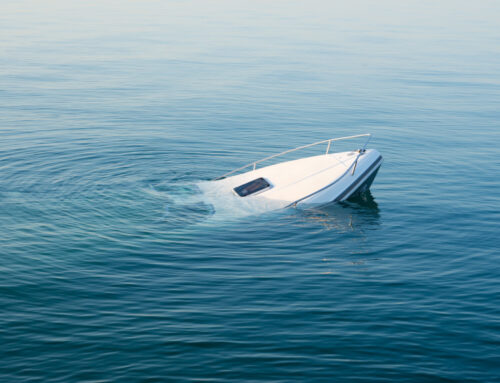The Merchant Marine Act of 1920, also known as the Jones Act, governs the responsibilities of maritime employers–dock workers, seamen, and other employees who work on the waters–when their employees suffer serious injury in the course of completing their daily work duties. Those workers are not protected by workers’ compensation the way employees in most other industries are. The Jones Act, however, provides assistance when an injury occurs in these dangerous environments due to the negligence of ship owners, employers, or coworkers.
However, that does not mean that an employer will automatically pay out the compensation you deserve. You may need to work with an offshore injury lawyer to pursue the compensation you deserve from your employer–and you want to make sure that you’re working with the right lawyer for you. Before you hire an offshore injury attorney, make sure you take these things into consideration.
1. Is the attorney familiar with the Jones Act and maritime law?
A claim under the Jones Act is very different from filing a typical workers’ compensation claim. In a Jones Act claim, unlike a workers’ compensation claim, you must prove that your employer contributed to your injuries due to an act of negligence. You need an attorney who understands the Jones Act and how it applies to your claim. A workers’ compensation attorney, or even a personal injury lawyer, who does not have experience with the Jones Act may not know how to effectively help you pursue the compensation you deserve for your injuries, form collecting the evidence needed to establish that your employer caused or contributed to your accident to laying out the compensation you really deserve for those injuries.
2. Does the attorney know what support your employer owes you under the Jones Act?
Many employers, when faced with a seriously injured employee, will attempt to reduce or minimize the compensation they have to pay out to that employee as much as possible. They may try a variety of tactics, including:
- Not paying out enough of your wages to provide you with funds to live on while you recover from your injuries
- Insisting that you use an employer-sponsored healthcare provider, rather than a specialist who knows exactly how to treat your injuries and maximize your odds of making a full recovery
- Pushing you to ignore your injuries for as long as possible, until they become a more serious problem
- Claiming that your injuries occurred due to your own negligence, rather than due to something that occurred at work
You need an attorney who knows the tactics employers may use to avoid paying out the compensation you deserve and how to combat them. Furthermore, you need a lawyer who will help you avoid those common tactics as you pursue the compensation you really deserve for workplace injuries sustained on the seas.
3. Can your lawyer provide you with support regardless of where you’re living while you pursue compensation?
Offshore workers who suffer serious injuries may return to their home states while they recover. You need an attorney who is able to represent you regardless of where you are. Offshore attorneys are often licensed on both coasts, since they may have clients who come from anywhere. However, finding an attorney who can work nationwide is rare. Make sure you confirm that your attorney is able to represent you regardless of where you are, including your state of residence while you file your claim.
4. Has the attorney practiced in the courthouse where a trial may be held in the past?
Even if your attorney has the right to practice in a certain state or area, he may not be familiar with the courthouse where the trial regarding your claim will most likely take place. Ideally, you want to work with an attorney who has experience with that specific court: the judge who will most likely hear your case, for example. As you consider the right attorney for your maritime accident, make sure you choose one with experience in the jurisdiction where your claim will be heard.
5. What is the attorney’s preferred communication style?
Communication can prove critical in dealing with a Jones Act claim. You want to work with an attorney who will communicate with you regularly, keeping you apprised of all the details of your claim. What did it take to get in touch with the attorney in the first place? How does the attorney prefer to communicate? Make sure you ask those questions before you sign a contract with an attorney, since it can make a big difference later.
6. What does the attorney’s current caseload look like?
Most of the time, law firms work on multiple claims all at the same time. However, you want to choose a law firm that has room in its schedule to deal with your claim. Your claim deserves attention, effort, and support from your attorney. Ask the law firm about its current caseload and whether the lawyer you have chosen has adequate room in his schedule to handle your claim.
You may also want to know who will actually do the work on your claim. Often, while the big name attorneys will show up in court to help, someone else may do the actual work on the case–and you may want to know that before you make a decision about the right lawyer for your case.
7. What expenses and fees will be associated with your claim?
Many personal injury lawyers, including lawyers who handle Jones Act claims, will take cases on a contingency fee basis: instead of paying up front for your legal services, you will pay the lawyer a percentage of your settlement or court award. Before you settle on an attorney, however, make sure you understand what fees and expenses you may face, including anything you might have to pay up front. The cheapest lawyer is not always necessarily the best one–but you do want to make sure that you’re making a sound financial decision when you select an attorney.
Do you need an offshore injury lawyer to help you manage a Jones Act claim? Allan Berger & Associates can help. Contact us today at 504-526-2222 to schedule a free consultation regarding your offshore accident.







